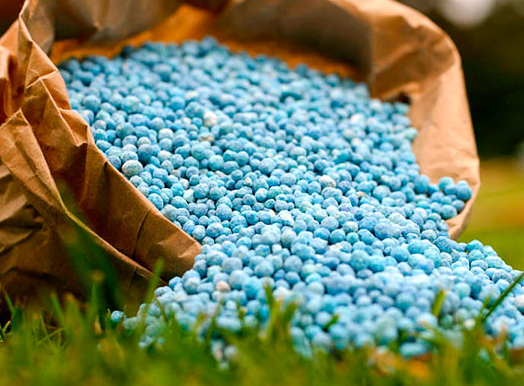Zimbabwe`s needs US$135m annually for fertilizer production

ZIMBABWE’S fertilizer industry requires about $135 million per year in foreign currency to operate at 60% capacity or more so that it meets current demand, an official in the industry has said.
Zimbabwe Fertilizer Manufacturers Association (ZAFM) chairman Tapuwa Mashingaidze told NewsDay that for the industry to produce 600 000 tonnes of fertilizer per year, it required $135 million.
“The industry believes that forex utilisation can be optimised by ensuring that only those players with adequate sourcing and quality control capacity are given licences and permits to import fertilizers,” Mashingaidze, who is also the chief executive for Chemplex Corporation, said.
“This will also reduce the risk of substandard products being brought into the country with grave consequences for unsuspecting farmers. In short, one challenge that should be addressed is improved regulation of fertilizer imports and the associated system for issuance of permits and licences,” he said.
Mashingaidze, however, said it would be preferable if these were issued to registered manufacturers with the requisite expertise and commitment to product support.
The ZAFM chairman said traders with free funds wishing to import fertilizer should collaborate with licenced manufacturers, a similar arrangement put in place in the dairy sector and other industries requiring high levels of specialist knowledge.
“Most traders have no idea of the intricacies involved with the various types of fertilizers and can easily be misled by some unscrupulous international dealers,” he said.
“Obviously, the industry also relies on the firm demand for fertilizers generated by an efficiently operating agricultural sector, with well-funded farmers supported by effective funding structures and fair producer prices and other factors that make farming viable.”
Mashingaidze said adequate government support for special programmes such as command agriculture also boosted demand and made the fertilizer business viable.
He added that good management was key to the viability of the industry’s operations.
“For example, early conclusion of contracts and placement of orders before the growing season enables the manufacturers to source and produce fertilizer into stock in good time to avoid shortages due to the long delivery times and logistic factors involved in the supply chains,” he said.
Read also
The 21st International Conference BLACK SEA GRAIN.KYIV took place in Kyiv on April...
Europe’s fruit farmers worry as unseasonal frosts threaten harvests
Ukraine has 4 million tons of sunseed left by the end of the processing season
The Paris Olympics menu: more French, more local, less meat
Explanatory meetings between the European Commission and Ukraine on agriculture ha...
Write to us
Our manager will contact you soon












